6 Amazing Homes Dug Into the Earth
There's an air of mystery about what lies below our feet. The idea of living below the ground might be a fascinating idea for some but a nightmare for others.
Most who choose to build in the ground today do so for environmental purposes, but the reasons for building fully or partially belowground may vary, including the necessity to minimize the building's impact on neighbors, building down where space is too tight to extend sideways or building upward, using the earth for its heating and cooling properties. Or some may build into the ground simply to be hidden from view.
Designing and building a house in the ground bring many challenges, including the cost of excavating, keeping water out, dealing with services and drainage, resolving issues around accessibility and designing for adequate natural light and ventilation. More often than not, new "underground" houses are partially dug into the ground or embedded in a hillside, leaving some sides open to the air, sun and views.
Take a look at these seven homes partially submerged in the ground and see what you think.
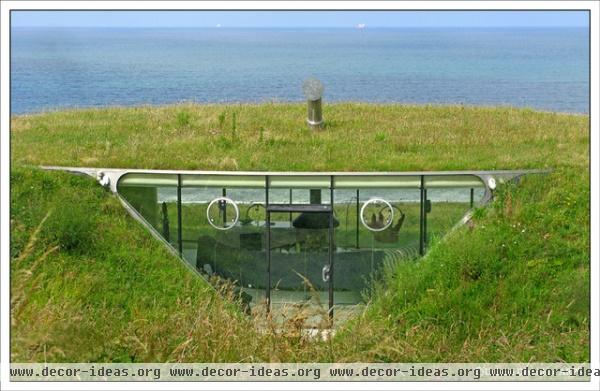
1. Malator, by Future Systems, Wales (1998)
Located dramatically on a clifftop in Wales, this one-room house is just barely below ground. With no garden, driveway or ancillary external spaces, it melts into the landscape. On the land side, a small glazed doorway in a dip opens to the view. Porthole openings have a maritime feel.
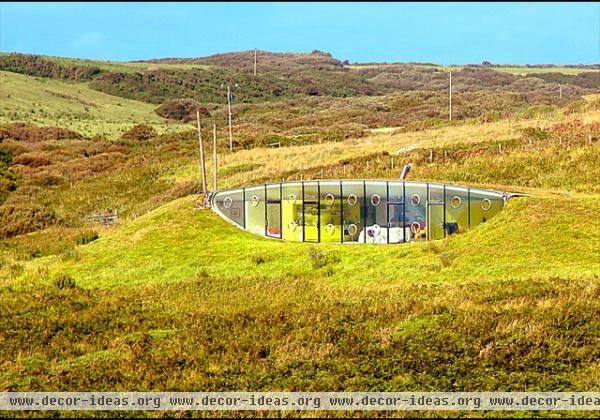
Internal functional areas are contained within colorful prefabricated pods. A large, curved sofa looks out over the dizzying expansive views of St. Brides Bay, with seagulls wheeling up from the cliffs below on warm air currents.
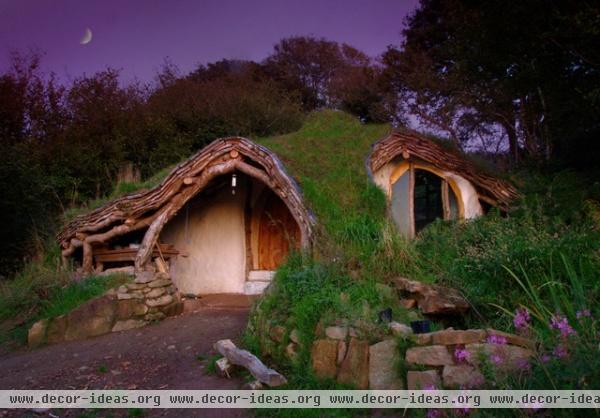
2. The Hobbit House, by Simon and Jasmine Dale, Wales (2005)
Builder Simon Dale built this low-impact, low-cost home for his family using very basic tools and local natural materials, all dug out of the ground or harvested from the surrounding fields. Compost toilets, solar panels, gravity-fed spring water and a wood burner make this house sustainable.
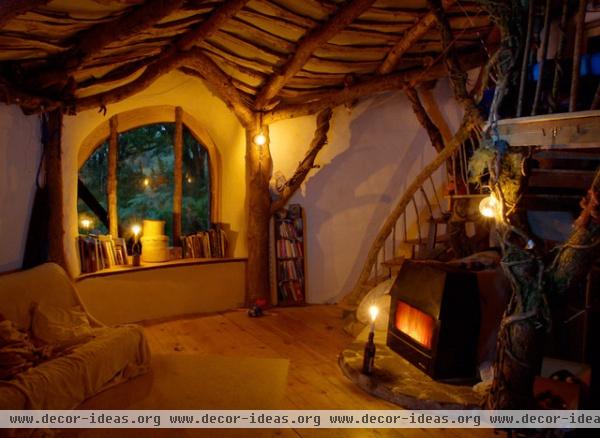
The house is partially dug into the hill to minimize its visual impact. About 30 roughly cut trees form the roof. The walls are a mix of lime-plastered dry stone and straw bales, and the roof is insulated with straw bales, topped with earth and sown with wild grasses.
See more of this house
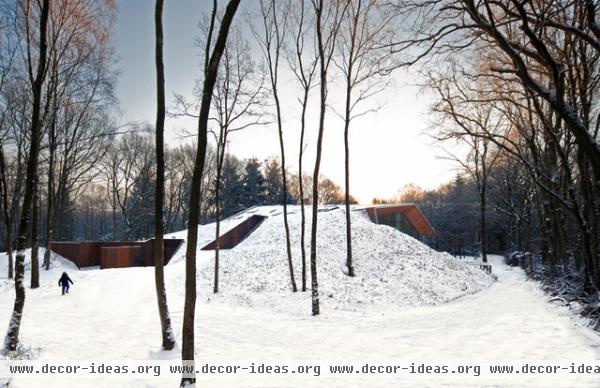
3. Dutch Mountain, by Denieuwegeneratie (New Generation), the Netherlands (2011)
This sustainable house is embedded in a wooded Dutch moor where the ground rises up like a small mountain, absorbing the house back into itself.
According to the architects, embedding the house in the hill insulated the home but also hid it. The homeowners enter through a cutout section in the mountain.
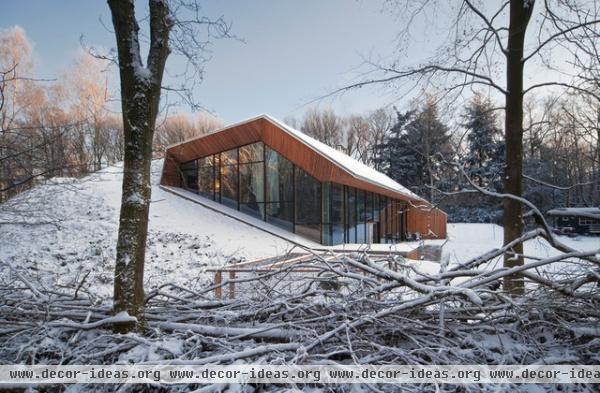
Aboveground a timber cantilevered roof emerges, with its glazed openings oriented to maximize the sun's energy and light up the interior. The house’s thermal mass retains heat when needed, and the earth’s natural properties cool the house in the summer.
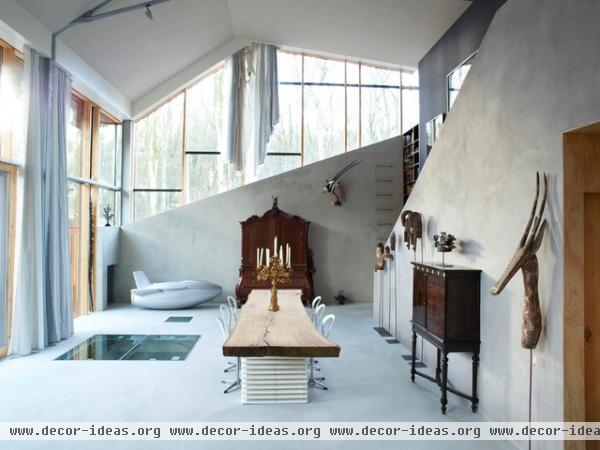
The house is surprisingly bright and welcoming inside, finished with a mix of exposed concrete and plain painted finishes. The rooms have either a cave-like atmosphere with daylight taken down through deep cuts in the hill, or large, open, southern-lit spaces in the front with views toward the surrounding woods.
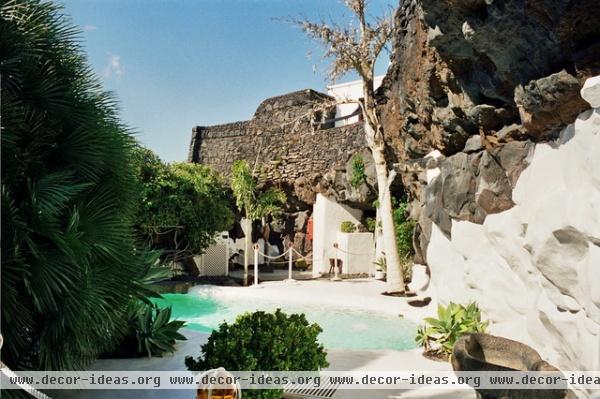
4. Home by César Manrique, Lanzarote Island, Spain (1966)
This famous home was built on the site of an 18th-century volcanic eruption in Lanzarote, Spain. Aboveground a low, smooth, whitewashed building surrounded by cacti and colorful steel sculptures emerges from an inhospitable black volcanic landscape.
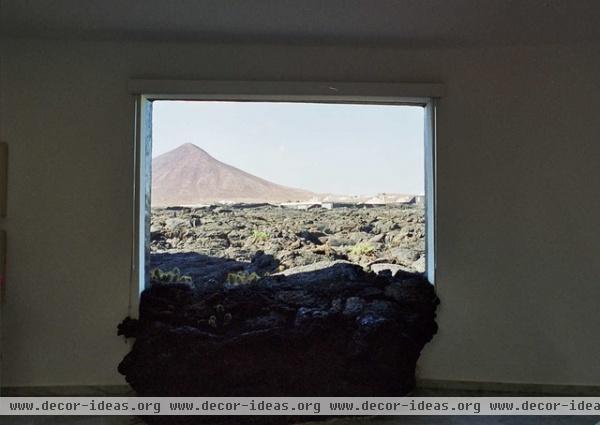
The rooms on the entry level contain artists' studios with large picture windows opening onto the basalt landscape. In one room the lava appears to have flowed inside.
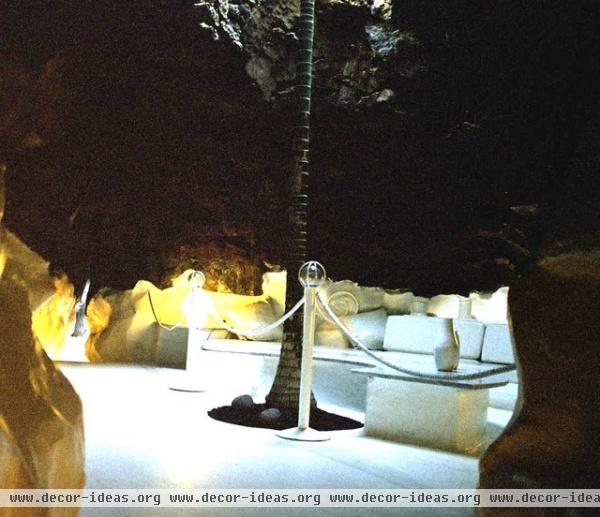
Large holes cut into the floor open into the lower story, where five spaces have been bored into the volcanic basalt. Stone steps lead down through the rock to the lower floor, and narrow passageways with white painted floors lead from cave to cave. In one cave a semicircular white couch surrounds a solitary palm tree reaching up through a hole in the cave's ceiling.
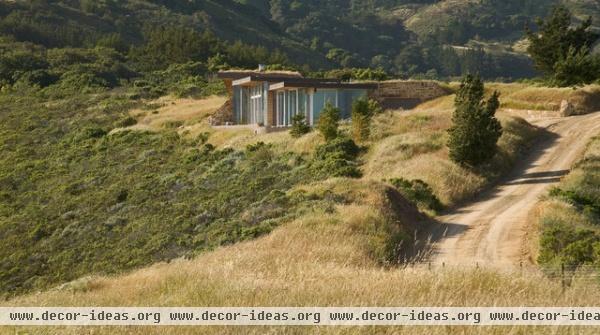
5. Dani Ridge House, by Carver and Schicketanz, Big Sur, California
This house was designed to disappear and constructed with sustainability in mind. To preserve the surrounding landscape and conceal the home from uphill neighbors, the architects cut a wedge into the hillside and backed the home into it. This allowed the land to rise over a gently curved roof, planted with native grasses. All the utilities are concealed belowground.
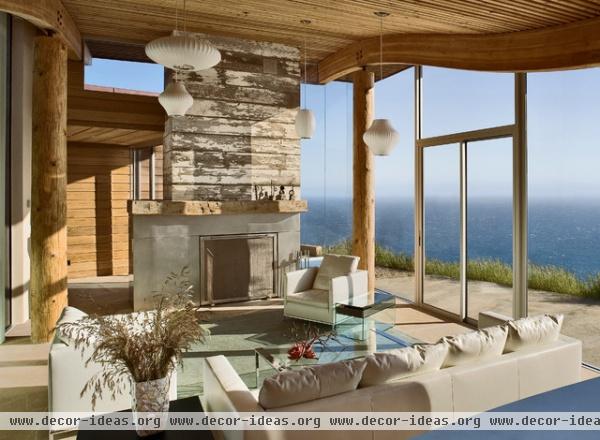
Glazed walls open up the views to the Pacific Ocean and collect solar energy, which is stored in the limestone floors' thermal mass. The retaining walls and earthen roof minimize heat loss. Positioning the windows from east to west encouraged airflow for cooling in the warmer months.
See more of this house
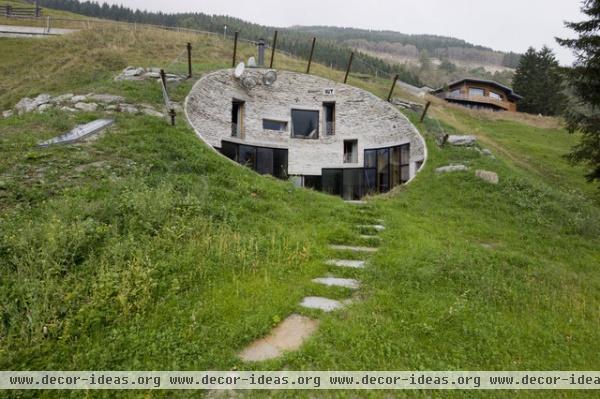
6. Villa Vals, by Christian Muller Architects and SeArch, Switzerland (2008)
Villa Vals is a modern take on the subterranean dwellings of old. Due to the particular sensitivity of the site, the architects buried the house deep into a steep hillside, leaving the surrounding nature undisturbed. Its expression is that of a void in the hill rather than an object sitting upon the hill.
More: What's Next for Our Homes' Exterior Design?












